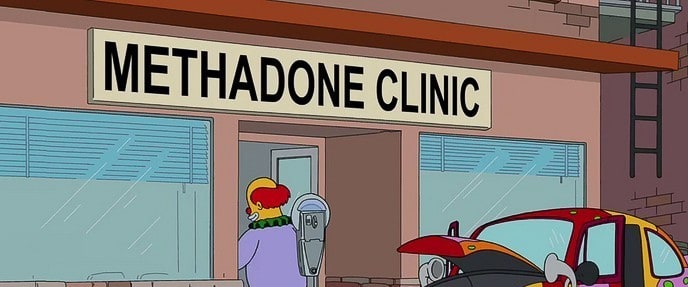Been There, Seen That. Face to face with opioid addicts.

I always consider myself as one of the lucky researchers. As a young scientist in the beginning of my career, the reason I believe I am lucky is not because of how much credit I got from doing research, nor does the research techniques I used have anything to do with this conclusion (well, I am proud of that at some point ☺). I’m the lucky one because I got lots of opportunities to learn and to understand the research subject of my Ph. D work, which is substance abuse cohorts, specifically people that are opioid dependent.
23 Bradston St, Boston, Massachusetts is the methadone clinic that gave me a new perspective on the opioid epidemic. A methadone clinic is a place where a person who is addicted to an opiate such as heroin or prescribed painkiller can receive medication-based therapy. Methadone has the same pharmacological target as heroin, but due to its long half-life, it has a longer duration of action which delays and prolongs the abstinence syndrome. Methadone itself is addictive and can induce tolerance and dependence to the users. I spent 4 hours with Dr. Weinstein observing the life of methadone-maintained patients for admission history and physicals, dose adjustments and the daily dosing procedure. To protect the privacy of the patients, I will only share some thoughts I have after doing this clinical rotation.
A ) Nobody wants to use heroin, even for those who are heroin dependent.
Before I started doing addiction research, I always thought that substance abuse is a lifestyle rather than a disease. I’m sure some people still hold this opinion, it is pretty easy for us who have not “been there, done that” to say: “ They could just save themselves by not using it. ” However, the truth is it is really not easy. Why do I say that? I knew this from the sincere words from the struggling patients and the fact that they got up so early to come all the way to the addiction clinic in the middle of nowhere and wait in the massive line just to get a few drops of methadone to relieve their heroin craving. I guess methadone clinics would not have existed if it were this simple.
B) Psychological education is really important to temper the epidemic.
I was shocked to know how frequent losing loved ones can cause the abuse of substance. This made me think about the ups and downs everyone experiences during their lives. Needless to say, some people are mentally stronger, born to be luckier, bought up to be tougher; they can quickly flip the page of “bad” chapters and start a new page. Psychiatric problems are often associated with opioid dependent people. These Psychiatric problems include depression and anxiety. Many times it’s a vicious cycle that drives them to use more. Addicted people should get psychological help while detoxing to increase their odds of getting and staying clean.
C) Personalized medicine can result in a great benefit to the substance addicts.
Patients in methadone clinics are very often on several different drugs. Some of them have reported using cocaine and marijuana at the same time as opioids but never got addicted to those. This is quite odd, since these drugs are all addictive. There have been countless genetic studies emphasizing the genetic risk factors of certain types of addiction using genome-wide association study (GWAS, see here ). GWAS reveals that certain single nucleotide polymorphism (SNP) could be the cause of the addiction phenotype. Simply speaking, one can be born to be more or less vulnerable to be addicted to a certain drug. If we can take good use of the information from GWAS and verified in the animal models, there will be a bright future to design a personalized treatment plan for heroin dependents.